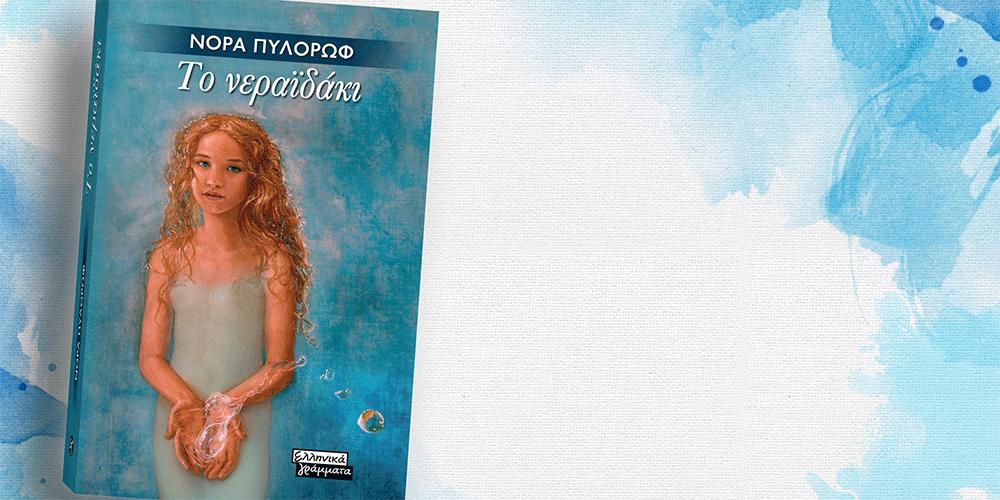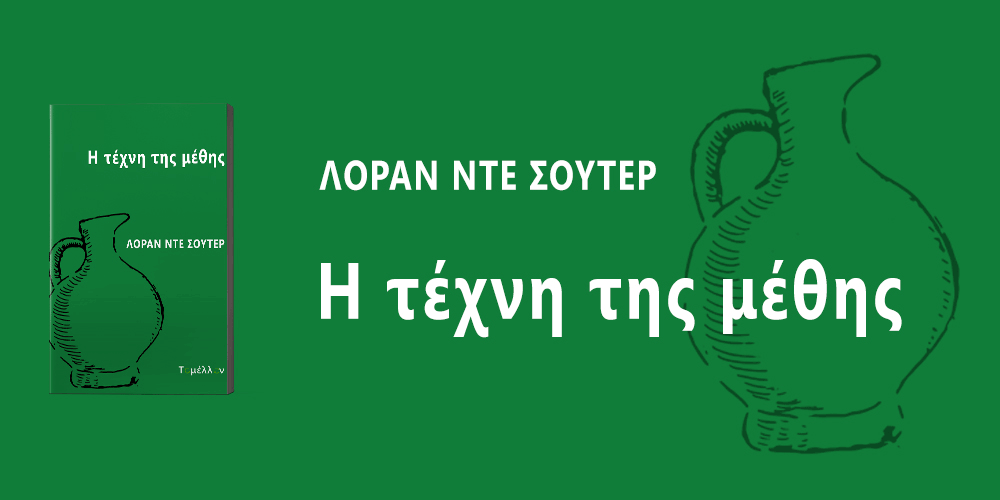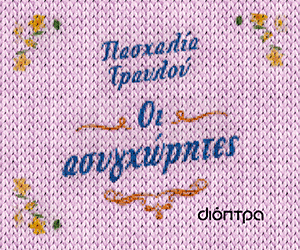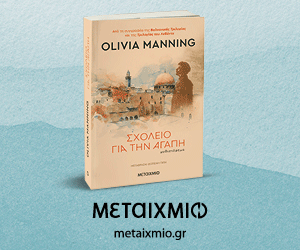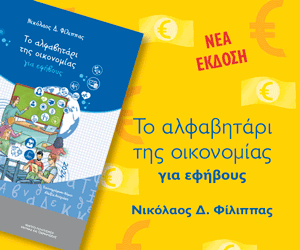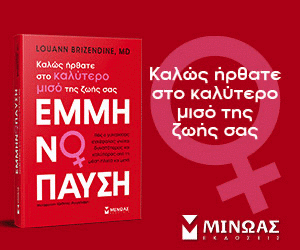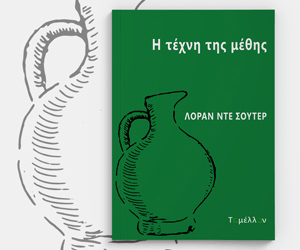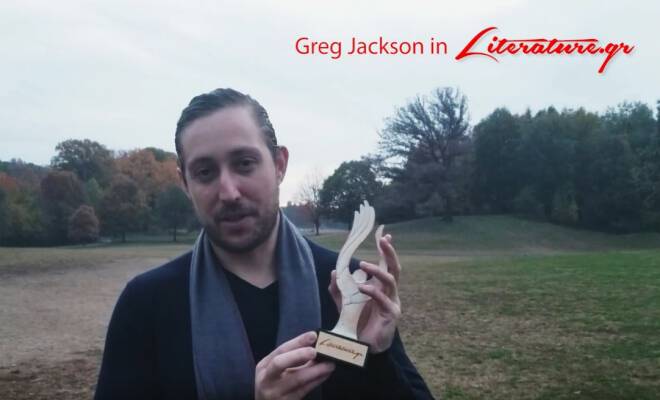
***Απαγορεύεται από το δίκαιο της Πνευμ. Ιδιοκτησίας η καθ΄οιονδήποτε τρόπο παράνομη χρήση/ιδιοποίηση του παρόντος, με βαρύτατες αστικές και ποινικές κυρώσεις για τον παραβάτη***


Literature.gr Foreign Phrase of the Year Prize 2017 has been awarded to Greg Jackson for his book: ”Prodigals: Stories”, published in the USA by FSG (2016) and in Greece by Antipodes (2017), translated into Greek by: Panagiotis Kechagias. Distinguished phrase: ’People are bullets, fired.‘
Τhe award ceremony of Literature.gr Phrase of the Year Prize 2017 as part of Athens 2018 World Book Capital project, whose major donor is Stavros Niarchos Foundation, was successfully held in B&M Theocharakis Foundation for the Fine Arts and Music, on Tuesday, November 27th, 2018.
Greg Jackson was pleased to answer the questions of the translator of his book, Panagiotis Kechagias, the philologist and translator Christina Linardaki who presented the book in the ceremony and the literary critic Lina Pantaleon who proposed the awarded phrase.
Even though he was unable to attend the ceremony personally, he sent to us a video with his acceptance speech, thanking Literature.gr and his colleagues in Greece.
Literature.gr and me personally, warmly thank Greg Jackson not only for the fantastic video that he sent to us but also for his excellent speech and kindness.
Greg Jackson΄s writing in his debut short-story collection Prodigals is substantially bold and radiant. Beyond doubt, his narration is marked by deep seriousness, a sign of intelligence and empathy. We are eagerly expecting his next work. Ι am wondering, will he be able to surpass himself?
Dina Sarakinou 9/12/2018
![]()
Lina Pantaleon: Is writing a compulsion or a painful process for you that nevertheless frees you from the stress and daily urgent needs?
Greg Jackson: I do not find writing an especially painful process (although this was not always the case), nor do I find it a compulsion. At this point it is simply something I have taught myself to do every day, and I usually feel better about it when I start than when I finish. Every day begins with the promise of solving problems and ends in wistful regret at the imperfection of my solutions.
On days when I don’t write I feel a strange diminishment of my own reality. Lately it has occurred to me that I will never be able to stop writing because of this, since writing has become the only way that I understand who I am. In that sense writing has not freed but encaged me, although it is a mostly welcome incarceration.
Panagiotis Kechagias: What are the main strains of contemporary American fiction, and which one do you prefer? How do you see fiction evolving over the next years, and how does your work fit in this evolution?
Greg Jackson: Is this really just one question? Jeez. The truth is I have read very little American fiction from the last five years, so I cannot comment with much authority.
What I observe, from a distance and probably erroneously, is increasing hype and froth around the release of books. This has a lot to do with discrete characteristics of the book, its topic, and its author, but perhaps less to do with the phenomenological experience of reading the book. Readers’ interest in books thus increasingly becomes about the way it connects them to this buzz and says something about them as a consumer. Books, in short, become accessories to a way of participating in culture. This is a distinctly public idea of reading, which some foolish souls continue to believe is most meaningfully a private act. I won’t name any of these people for fear of self-incrimination.
I think this question wants me to comment on schools or styles of writing (postmodernism, autofiction, etc.), but I am not convinced that this angle of inquiry currently has much meaning. Since the last gasps of quasi-coherent movements like postmodernism, minimalism, and dirty realism, American literature has been a free-for-all: everything is permitted. But just because everything is permitted does not mean anything is demanded. Reading has always been a private activity, but we do not live in an age that sees much point in private acts. So either fiction will succeed in reminding of the joys and importance of private things or it will fall into greater irrelevance.
My work, I guess, can be filed among other agnostic sermons preaching to churches of people who don’t like churches, who are appalled at their own presumption to preach, and who feel faintly embarrassed that they continue to care about things. Eyes straining to see stars that probably aren’t there on a very black night. Drug pushers selling brief hits of hope to cynics.
Panagiotis Kechagias: Your book is written and structured in a way that draws parallels with some of its readers’ lives and experiences. What is your position on the role and use of realism (or maybe these days I should say “reality”) in fiction?
Greg Jackson: I have never really believed in realism, so my position on its role and use is the same as my position on a conservation approach to the Mountain Yeti: I will develop a platform when I see it in the wild.
What is realism? Certainly what gets the name in fiction has little to do with how we experience our lives. But there is undoubtedly a spectrum of writing that is simpler for readers to parse. I would guess this has to do with the conventions of usage and how language evolves to express the ideas we find it most useful or important to express. Literature is always trying to resist the conventions of language—to use language as opposed to being used by it—so it seems appropriate to take a skeptical stance to anything that feels overly familiar.
But different writers have different aims and each must tailor his or her language accordingly. I am often interested in how words can give us more direct access to psychic and emotional experience than conventional language permits. To that end, I am fine with something that makes intuitive or symbolic sense happening even if it seems unlikely or implausible. A deeper logic than statistical probability obtains. To choose to invent a story in the first place is to put one’s thumb on the scale big-time.
Can we use language and narrative in a way that feels so authentically true to the inner substrate of existence that a book is more exciting than television, Twitter, and tribalism dissolved and mainlined as one substance? That’s the question. I don’t think realism is exactly the answer.
Panagiotis Kechagias: You’re serving on the Board of Education. There is one more crucial slot to be filled in the high school fiction curriculum. If you had to choose one between Bill Watterson’s “Calvin & Hobbes” and Joseph Conrad’s “Lord Jim”, which one would it be and what would be your reasons for it?
Greg Jackson: Neither, alas. While both can be read fruitfully at any age, in my official capacity on the Board of Education I cannot in good conscience allocate precious municipal funds to books better suited to middle-schoolers and college students.
Instead, I would assign literary works that deal with sex. Judging from my own experience, this is what high school students are thinking about anyway and people should be encouraged to think more about the things they are interested in thinking about. This would also help get students to read the books, which is the main thing, and they might even discover they had developed an interest in literature by the time they calmed down enough to reflect on the many varieties of pleasure.
Christina Linardaki: Reality in your stories emerges as a place than can’t be lived, with your heroes (or anti-heroes) having to resort to hallucinations of sorts. Is this a metaphor or a literality of the human condition?
Greg Jackson: This follows nicely on Question 3 above. Again I have my skepticism about “reality,” as such, when we live in such small and subjective pockets of anything deserving so grand a name. What we mean by reality, it seems to me, is mostly widespread social agreement on various stories: history, for instance, or economic value, or something called the “news of the day.” These stories are by no means inevitable; they could always be different. But we currently have so little of this agreement, in my society at least, that to inhabit the “reality” of what appears daily in the newspaper is already to feel you live in a hallucination.
But I did not write Prodigals in this precise moment, so let me avoid introducing too much anachronism here. I think the quality you are asking about comes from two places: 1.) my own experience of finding consciousness often unbearable; 2.) the sporadic intuition that there is a mediating layer of convention—let’s call it “realism”—that stands in the way of direct or organic experience. We know this mediation exists because we have memories of times when it was weaker in childhood and because even as adults we occasionally have experiences of sufficient intensity to dislodge it. But usually we need help agetting there—so we drink and go to rock concerts and have love affairs and so on.
Many of our most important experiences bear the stamp of this naked intensity and so anyone who is a seeker—a prodigal—longs to rediscover it. We may also long to integrate it more sustainably with daily, unexalted life. Literature is one method. In a sense this integration is a signal project of fiction and most art.
Christina Linardaki: Sometimes you zoom into life and present, through your characters, alternative perceptions of it. Is it because you want to show the many ways in which life can be perceived or do you mean this as a manifesto against the mainstream way of life?
Greg Jackson: Maybe it’s both. I have never thought of it in these terms, but the one seems closely related to the other: a sensitivity to the many ways experience can be understood or perceived should lead us to question any reductive idea of life and lobby for a more expansive definition.
But I am repelled by manifestos as an inflexible rule. My manifesto has one entry: No manifestos. Once you get too certain that everything mainstream is flawed and oppressive, you lose sight of all the wisdom in common things and you bind yourself to radical solutions that are only ideologies of a different sort, generally the less-popular kind and often less popular for a reason.
I see the trap of ideology on all sides, in short, and my sense of art’s greatest gift is to make us feel free. Spiritually free, perhaps. A very particular sense of freedom, in any case, that has to do with a radical validation of the intensity and beauty of subjective experience in all its idiosyncrasy and perversity.
If I can quote my own character, Hara, from my story “Epithalamium”: “But anything could be a prison, it turned out, perhaps most of all the notion that you were free. And once you started to believe in the idea of your life, well, the filaments of a cage had already begun to lattice themselves about you, hadn’t they?”
Christina Linardaki: You seem very pre-occupied with what happens in the space between: two moments, two people . . . and you tend to focus on that space as if looking through the microscope. Does this reveal an aspect of your character or is it just a writing skill?
Greg Jackson: Hmm . . . I think you have probably nailed me on a habit that grows out of my limitations as a writer. I hope that I write more elaborate set pieces in the future, with more voices and characters, but these can get unwieldy in short stories. And then the opposite tendency—to stay rooted in one character’s consciousness—can grow claustrophobic after too many pages. I suppose that intense moments between two characters are a way to externalize and dramatize those loops and spirals of thought that would grow tiresome as pure interiority.
Maybe this also reflects my own sense that the only interactions outside oneself that have the same intensity as inner life are those that occasionally transpire with another person, someone with whom you discover an especially deep emotional or intellectual connection. But even just saying that, I realize how much I associate this experience with being younger and feel suddenly nostalgic and uncertain. I don’t know. You move, as a writer, inexorably toward what howls with the most unsettling emotion.
Christina Linardaki: Are your characters universal? Or would you describe them as typically American?
Greg Jackson: You might be in a better position to answer this than I am. I have no idea what makes someone typically American or if there is such a thing, and I certainly would never set out to try to capture the country’s spirit in literature since I don’t have a clue what it is. On the other hand, by American standards, I’m basically a European, so maybe you’re just asking the wrong guy.
As to whether my characters are universals, no, I don’t think so. I hope everyone can relate to aspects of their struggles, particularly the sense of spiritual longing and a feeling that modern existence does not account for everything a human needs. But the characters are of a demographic type, mostly born in the 1970s or ’80s, mostly upper middle class or well educated: basically, people under 50 who read books. There are historical (and maybe personal) reasons I think these people are very beautiful and poised for a kind of greatness they have been robbed of. But right now too many of them are just trying to squeak by with successful bourgeois lives where I live. I want to lure them back to the more foolish idealism of our youth.
Lina Pantaleon: Which of the Prodigals you probably dislike and why? (Which of the heroes in your book repels you as a personality and idiosyncrasy?)
Greg Jackson: I don’t dislike any of them. I would never write about a character I disliked (which is not to say I write about characters I think are heroes or saints). I don’t understand, to tell the truth, why people spend time describing characters in fiction as unlikeable, unless they mean to suggest that they are innocent of the unpleasant thoughts and motivations of the characters themselves. I am not remotely innocent of these thoughts and motivations—I am flooded with them—so I cannot really believe that other people are innocent of them either.
All this talk of dislikeable characters strikes me as disingenuous and depressing by turns. It is through literature’s honesty that we can share in our illustrious human mediocrity, rue it, laugh at it, draw closer because of it, and aspire in small ways to transcend it. Literature is supposed to bring our dark places out of the shadows, but if we care more about moral self-promotion than honesty they will slink back into the shadows where they are most dangerous.
Our less-noble impulses and thoughts, after all, are not the problem. The problem is lying and thereby creating a public world of speech that has nothing to do with the private experience of being human. It is this disjuncture that permits a world, like our own, where moralism, righteousness, and sanctimony are on the rise alongside immorality, wrongness, and cynicism. If we are not brave enough to be unashamed of our darkness and to expose it to the light, it will devour us. Or become our president. Or both.
Lina Pantaleon: Could you imagine yourself devoted to another profession?
Greg Jackson: No, not really.
![]()
Panagiotis Kechagias was born in Athens in 1978. His first book, the short story collection “Final Warning” was published by Antipodes in 2016. He has translated Greg Jackson’s “Prodigals” (Antipodes, 2017), E. A. Poe’s “The Gold-Bug” (forthcoming by Gutenberg) and Mike McCormack’s “Solar Bones” (Antipodes, 2018).
Σαν Ουρά Παγωνιού, γράφει ο Παναγιώτης Κεχαγιάς [Ασωτοι, Γκρεγκ Τζάκσον]
Christina Linardaki was born in Athens in 1971. She is a graduate of the School of English Literature, University of Athens, and she has also studied translation and interpreting at the University of Manchester – Institute of Science and Technology. She holds an MA in communication from the Open University of Cyprus. She has been working as a translator since 1993. As of 2013, she is Head of Publications at the Centre for Culture, Research and Documentation of the Bank of Greece. She is also a content expert/researcher at the Advanced Media Institute, specializing in the connection between literature and communication. She has published four books with short story and poetry translations (a fifth one is under way) and has contributed with essays to three collective works, one on Odysseas Elytis (Athens: Pineos Publishing, 2011), one on Makis Apostolatos (Athens: Vakxikon, 2016) and one on John Berger (London: ZED Publications, 2016). She has published articles in Greek newspapers and literary magazines and has interviewed important Greek and Cypriot people of the letters. She is the editor-in-chief of the literary blog stigmalogou.blogspot.com. She is married with two children and lives in Athens.
Η εντιμότητα της σωτηρίας, γράφει η Χριστίνα Λιναρδάκη [Άσωτοι, Γκρεγκ Τζάκσον]
Lina Pantaleon was born in Athens in 1979. She studied mass media and culture in Panteion University. From 2001 she started collaboration with several literary magazines and newspapers as a critic. She is the author of two collections of essays about modern Greek literature, The rights of a reader (2009) and Exclamations & Hesitations (2012). They are both published by Polis Editions. She is regarded to be as one of the most respected literary critics in Greece.
Όλος αυτός ο χρόνος, γράφει η Λίνα Πανταλέων [Άσωτοι, Γκρεγκ Τζάκσον]
![]()
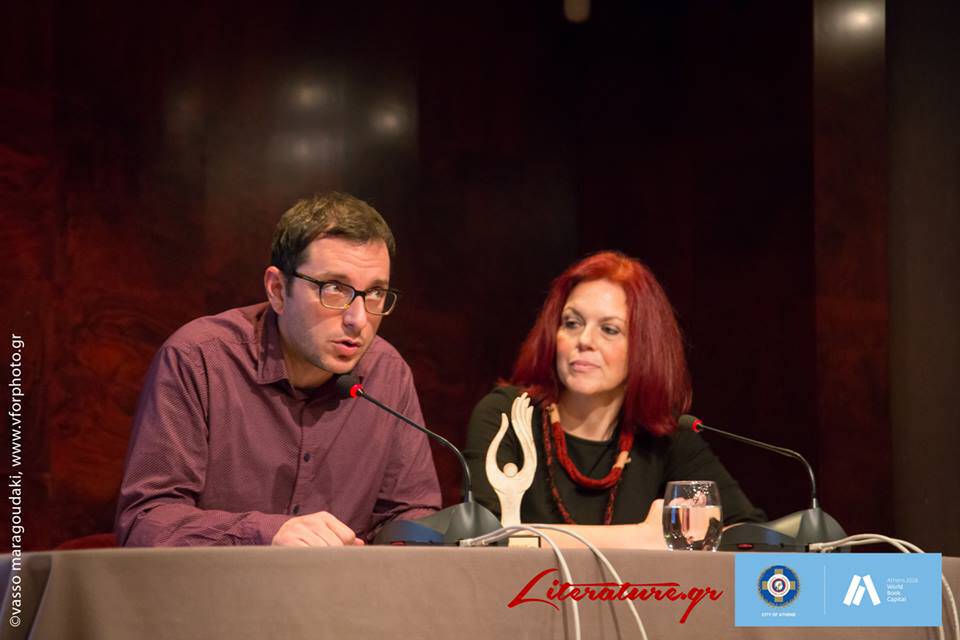
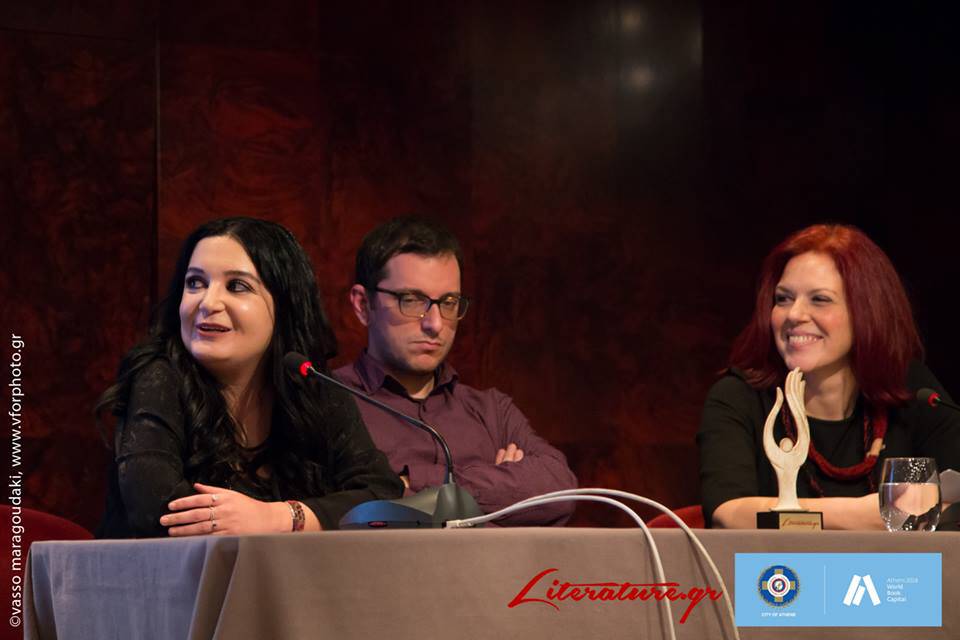
Όλος αυτός ο χρόνος, γράφει η Λίνα Πανταλέων [Άσωτοι, Γκρεγκ Τζάκσον]
Σαν Ουρά Παγωνιού, γράφει ο Παναγιώτης Κεχαγιάς [Ασωτοι, Γκρεγκ Τζάκσον]

Georgia Galanopoulou, Amanda Michalopoulou, Michalis Modinos, Katerina Fragou, Kostas Spatharakis, Michalis Kalamaras, Petroula Gavriilidou, Katerina Schina Chris H. Theofilatos, Dimitris Sotakis, Nick Kiadaris, Dina Sarakinou


Ακολουθήστε τo Literature.gr στο Google News και μάθετε πρώτοι όλα τα νέα για τον πολιτισμό και την επικαιρότητα από την Ελλάδα και τον Κόσμο.





